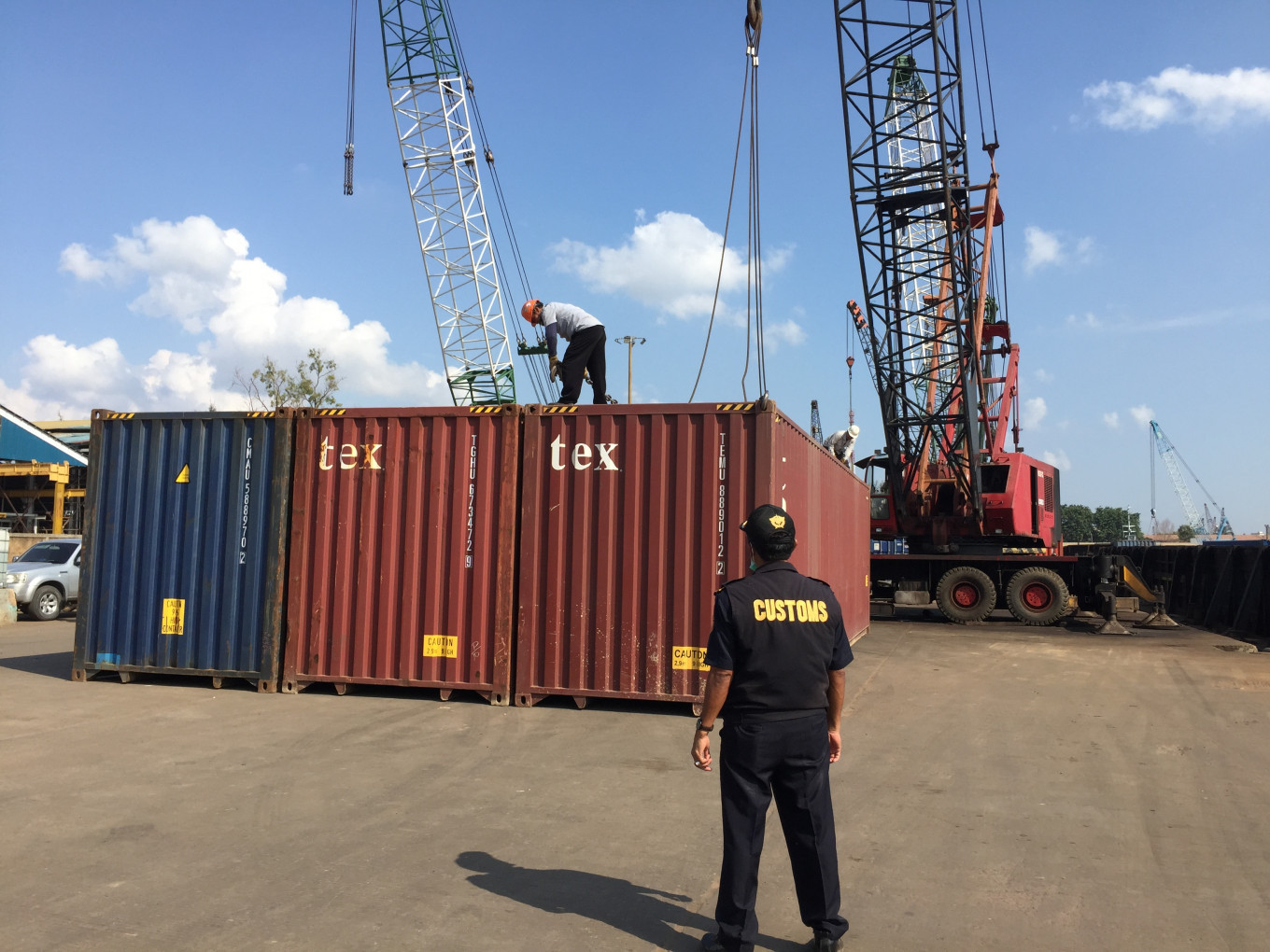Popular Reads
Top Results
Can't find what you're looking for?
View all search resultsPopular Reads
Top Results
Can't find what you're looking for?
View all search resultsIMF trims Indonesia’s economic growth prospects amid weakening exports
The IMF expects economic expansion in the ASEAN-5 countries to reach 4.8 percent in 2020 and 5.1 percent in 2021.
Change text size
Gift Premium Articles
to Anyone
T
he International Monetary Fund (IMF) has trimmed its economic growth prospects for ASEAN-5 countries, including Indonesia, because of exports
After slowing to 4.7 percent in 2019 from the IMF’s October projection of 4.8 percent, growth in the ASEAN-5 is projected to remain stable in 2020 before picking up in 2021, according to the World Economic Outlook January 2020 update published by the IMF on Monday.
The ASEAN-5 countries are Indonesia, Malaysia, the Philippines, Singapore and Thailand
The Washington-based institution expects economic expansion in ASEAN-5 countries to reach 4.8 percent in 2020 and 5.1 percent in 2021, a downward revision of 0.1 percentage points for 2020 and 2021 projections compared to those in the fund’s World Economic Outlook released in October 2019.
“Growth prospects have been revised down slightly for Indonesia and Thailand, where continued weakness in exports is also weighing on domestic demand,” the report reads without further elaboration.
In its October 2019 World Economic Outlook, the IMF wrote that Indonesia's gross domestic product (GDP) was expected to expand just 5 percent this year — down 0.2 percentage points from its April projection — and 5.1 percent in 2020, down 0.1 percentage points from an earlier forecast.
Indonesia recorded exports worth US$167.53 billion in 2019 and imports totaling $170.72 billion, resulting in a $3.2 billion trade deficit, Statistics Indonesia (BPS) data shows.
University of Indonesia (UI) rector and economist Arie Kuncoro said last week that trade tensions around the globe had resulted in a lack of demand for Indonesia’s products, adding that this had taken a toll on the country’s exports and imports last year.
The IMF also revised down its global growth forecast, mostly because of a sharper-than-expected slowdown in India and other emerging markets, despite a boost in market sentiments caused by a first-phase trade deal between the United States and China.
The fund estimated that the global economy expanded by 2.9 percent last year, a downward revision of 0.1 percentage points and the slowest pace since the global financial crisis, with trade frictions weighing on exports and investment.
The IMF projected global growth to pick up to 3.3 percent in 2020 and 3.4 percent in 2021, a decrease of 0.1 percentage points and 0.2 percentage points, respectively, from previous projections.
“We have not reached a turning point yet,” IMF managing director Kristalina Georgieva told a news conference on the eve of the annual meeting of the World Economic Forum (WEF) in Davos, Switzerland, Reuters reported. “The reality is that global growth remains sluggish.”










